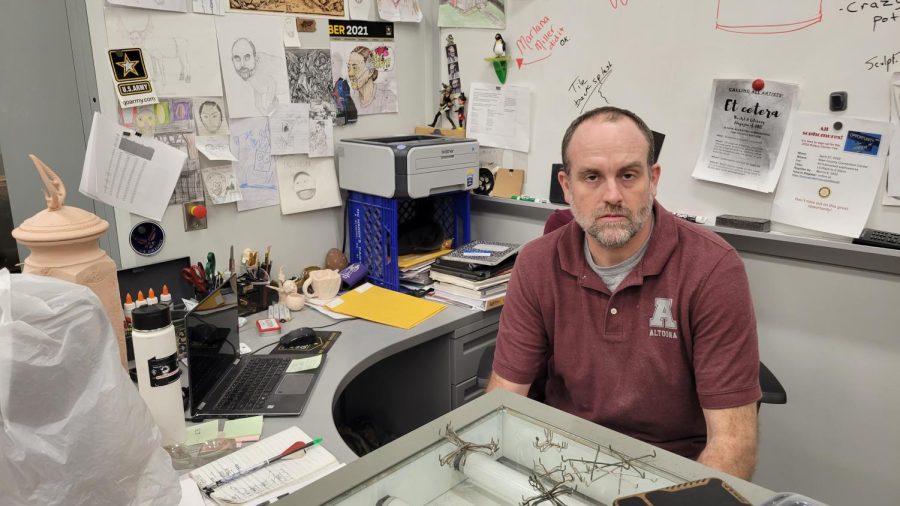Eric Hoover
Name
Eric Hoover
What was your highest rank?
Specialist, E-4.
Which branch were you in?
It was the Pennsylvania Army National Guard.
What Military Occupation Specialty (MOS) did you have?
Why did you choose that branch?
I came out of high school, and I didn’t really know what I wanted to do. I knew that I liked the Army, and it was something I always wanted to do ever since I was a little kid. My father was in Vietnam, and I just thought that I wanted to be a lot like my dad. So I decided to go in. It pretty much helped me calm down in life. I was a little out of hand in high school, and it helped me to figure out who I wanted to be.
How long did you serve?
Six years, four years active, and two years inactive.
How long ago did you serve?
I signed up Feb. 17, 1997, and I got out in 2003.
How did you end up becoming a teacher after serving? Was that your initial plan after serving or did it change?
Honestly, I started off college right after I came back from basic training. When I started school, I wanted to be a teacher then, but I didn’t have the motivation. I didn’t really like college that much. I had enough of it, and I just quit going one day. I kept thinking to myself, after I got out [of the military] that I wanted to go back because it was something that I had an original goal of becoming a teacher when I was in high school, but I didn’t know if it was for me. So I took a year and a half or two years off, and I met my wife and had my son. Then I ended up going back to college because I knew it was something I wanted to do. The military did help me out with it because they did help with the schooling and the motivation to get through the difficult times
Is there anything you remember about your time in the service?
When I was in, because of my MOS, we got to do lots with obstacles. So if there were ever a situation where the enemy would come in, we would have to make ways for the enemy to get stuck in a trap or make traps. It was pretty much building obstacles and barriers for them to try to get around. I learned how to do explosives, like shaped charges and crater charges. We had to learn how to take out obstacles, use different machinery. The machinery we used was a lot of fun. It was really interesting to learn how to use. We used the armored vehicle launch bridge, where you actually launch a bridge from a tank and drive over a ditch where a tank gets stuck. I got to drive ACEs, which are Armored Combat Earthmovers, which was a combination of bulldozer, and it had a part that lifted up and scooped dirt and moved dirt. That was fun to drive. I also drove APCs, Armored Personnel Carriers. I was an APC driver for I think three of the six years I was in. I also went to Germany, and I was stationed there doing gate guard for six and a half months. So we would do four days on [duty], for 12 hours a day, and three days off, and then next week we would do the opposite.
Where are some of the places you’ve been?
We went to Lithuania once; it was part of the Baltic Challenge, in 1999, I think that’s when I went. I was in Germany for a while, different places all throughout the United States, different training areas. Missouri, Virginia, Fort Bragg, N.C., Fort Dix, N.J. and Fort Drum. All over the place.
What does being in the military mean to you?
I feel that it’s part of being a citizen of the United States, doing something for your country. If it’s civil duty, like jury duty, or just being there for us to have the freedoms our forefathers have given us. I think it’s something that a lot of people in this country take for granted. There are people out there on a daily basis trying to protect our country. And a lot of people just think that everything they have has been there since they were born. They don’t realize how many people have put time and energy into making sure everything’s safe here in the United States. I commend anybody that does serve. My father did, before he passed away. I served, and my son is currently serving in the Air Force. I give props to anybody who decides to serve.
Any tips for students going into basic training?
You’re never right. People who go into basic training think, ‘oh, I know this answer, I’m going to be right,’ no, you’re never right. They figure out you’re wrong even if you are right.
